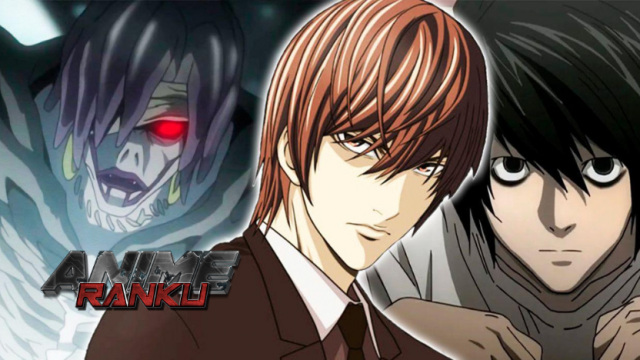Death Note by Takeshi Obata and Tsugumi Ohba is notorious for killing off many of its best characters, many of whom die in memorable, tragic, or even creative ways. Death Note is defined by its breathtaking battle of wits between the antihero Light Yagami and the world’s best detective, L, and certain deaths along the way are particularly poignant.
Numerous minor and supporting characters are killed off, including Demegawa and Raye Penber, but these deaths only advance the plot at that specific point before the story moves on. A few significant deaths, though, completely altered the course of this grim adventure, and many of them were heartbreaking or related to important themes in Death Note’s provocative narrative.
Soichiro Yagami Passed Away Joyfully But In Vain

The NPA deputy director who is Light Yagami’s father was prepared to risk his life to solve the Kira case and bring the serial killer to justice. In order to catch Kira, Soichiro refused to work with L and subject criminals to experiments because he was a law-abiding citizen and a cop’s cop. But after giving the notebook to Mello’s men in exchange for the safety of his daughter Sayu, Soichiro ultimately turned traitor. He even struck an eye-for-an-eye deal with Ryuk to enlist his assistance in seizing the notebook by force.
Although the mission was successful, Soichiro was fatally shot and died in a hospital surrounded by his coworkers and son, Light. Soichiro died genuinely happy, but his happiness was based on the mistaken belief that Light was not Kira. His death was contradictory in that it was both happy and unfulfilled, and it was unclear how genuine Light’s outward displays of grief were. Death Note fans are left wondering if Light truly grieved for his father, or if it was all a ruse to appease the other NPA officers present.
Rem’s Death Demonstrated that Light Had Evolved into Something Transcendent

Misa Amane’s patron shinigami, Rem, was the only shinigami to die outside of flashbacks in Death Note, and her death helped prove just how far Light had come as Kira. In Light’s own eyes, Rem was little more than an obstacle as Misa’s devoted protector, so he needed to tie up that loose end and kill Rem in the process of killing L and Watari. Light concocted a brilliant plan to set up Misa as Kira where L could see her, forcing Rem to kill both L and Watari to protect Misa and die in the process.
Light did what was once thought impossible and killed a shinigami, and it wasn’t even his main goal. As Rem died from the irony of a shinigami extending a human’s life, Rem noted to herself that Light had surpassed shinigami and become something more. This helped establish Light as a true monster in the post-L story arc, a fully-realized Kira who had no obstacles remaining to world domination.
L May Have Passed Away, But His Justice Persisted

The most memorable and tragic character death in Death Note is L’s, and many fans consider that the end of the “true” story. However, L’s death doesn’t signal the end of the narrative; it’s the middle part. Light merely won one battle when he killed his nemesis, but the whole point is that while L himself died, his stubborn ideal of justice and his determination to capture Kira lived on.
Light only killed the man, not the mission to capture Kira, and that is why he was bound to lose eventually. L was ready to die to see Kira brought to justice and he did, which means that in retrospect, L died a heroic and worthy death. What the detective stood for couldn’t be killed by any shinigami, bullet or notebook. This is why, while it’s heartbreaking, L’s death was not in vain; it was just another stepping stone to Light’s eventual downfall.
Light Yagami’s Demise Was Poetic Justice Catching Up to Him

Some Death Note fans disagree with the conclusion of the series, claiming Light “should” have triumphed and had earned his ultimate victory before the annoying Near ruined it at the last second. But regardless of whether Near’s ultimate triumph was fabricated, the themes and message of Death Note practically demanded Light’s demise. He isn’t your typical hero; Light’s objectives and tactics made him an unlikable antihero who opposed everything shonen manga/anime stands for; such a character isn’t “supposed” to triumph.
If Death Note depicted Light also defeating Near and ruling his Kira Kingdom for all time, it would send a strange and deeply disturbing message. This is a dark and disturbing series with disturbing characters, but as a true shonen title, it would not lavishly reward its protagonist for being someone like Kira. Death Note, like a Greek tragedy, was about the folly of one young man’s bloody ambitions and hubris, so Light had limited plot armor that ran dry when Near made his move. Fictional heroes usually win in the end and have a happy ending, but for a character like Light, that rule is finally broken, making Death Note all the more memorable.















Leave a Reply